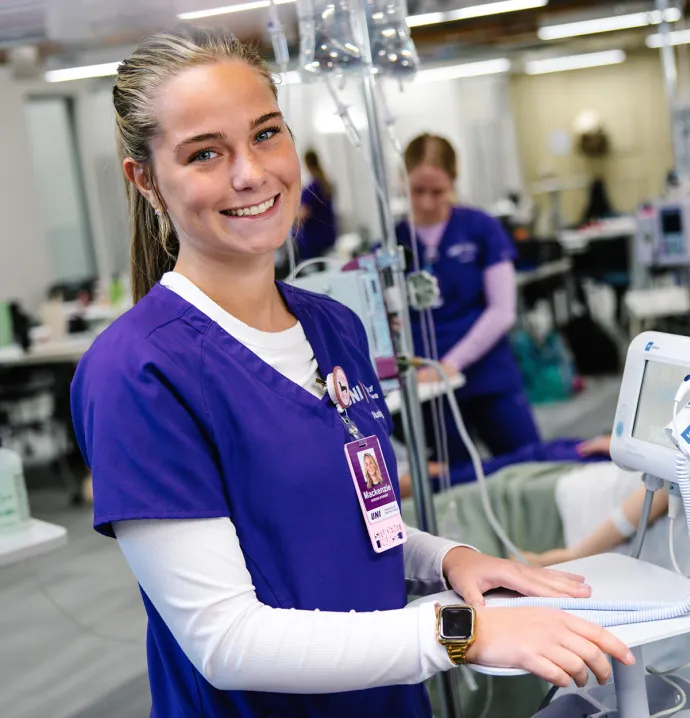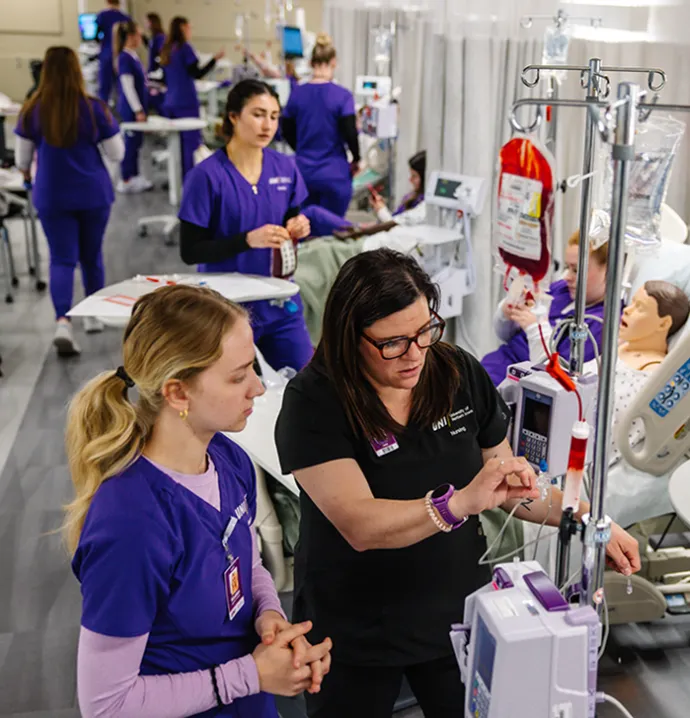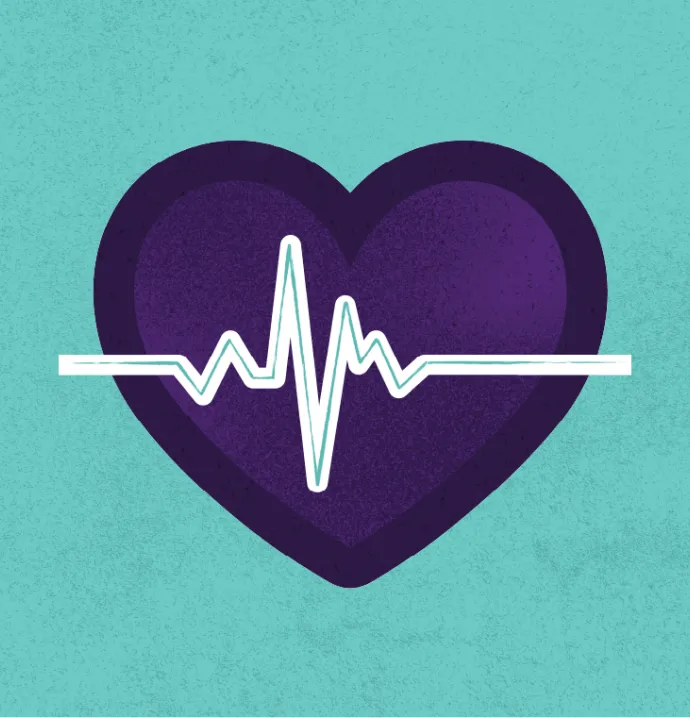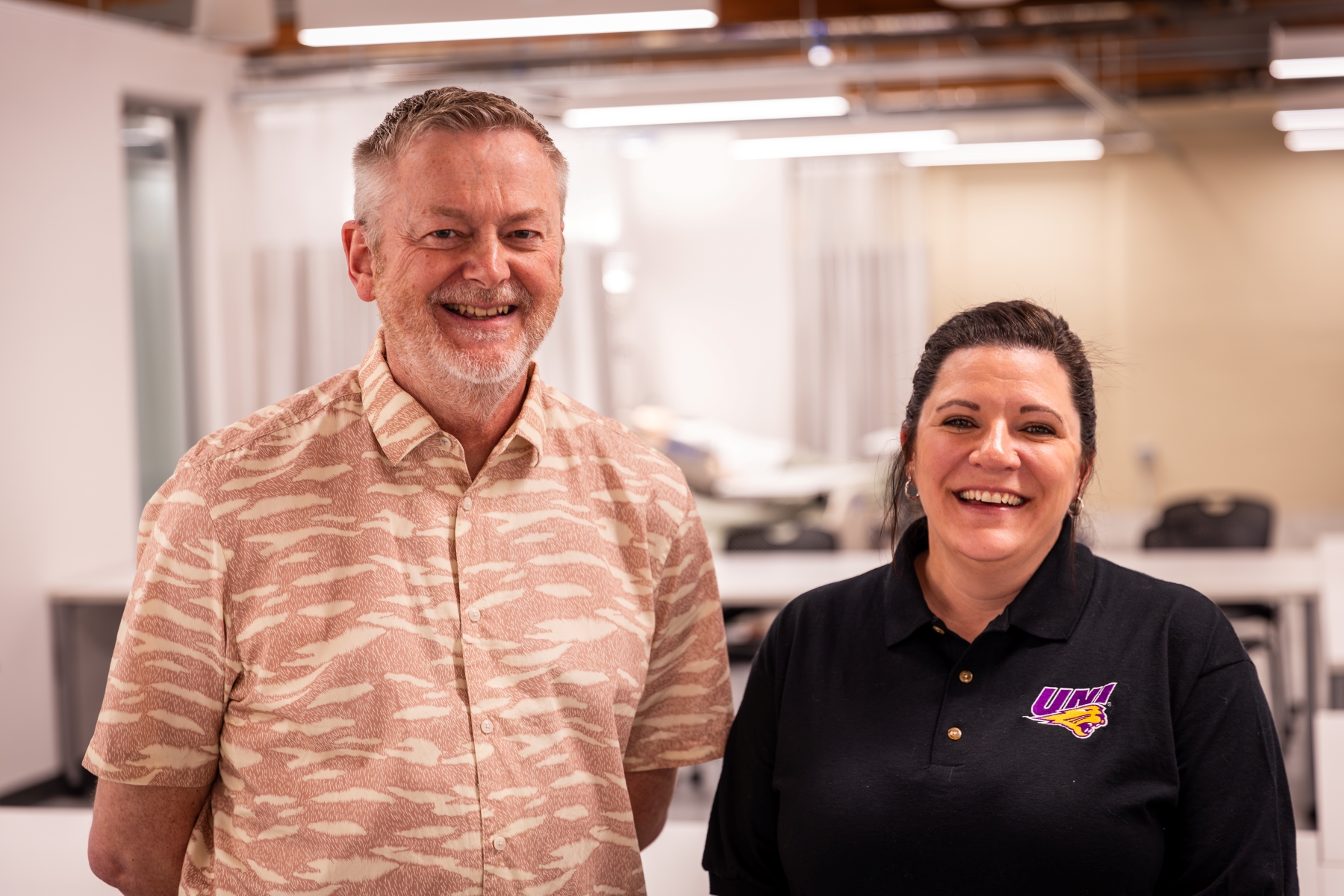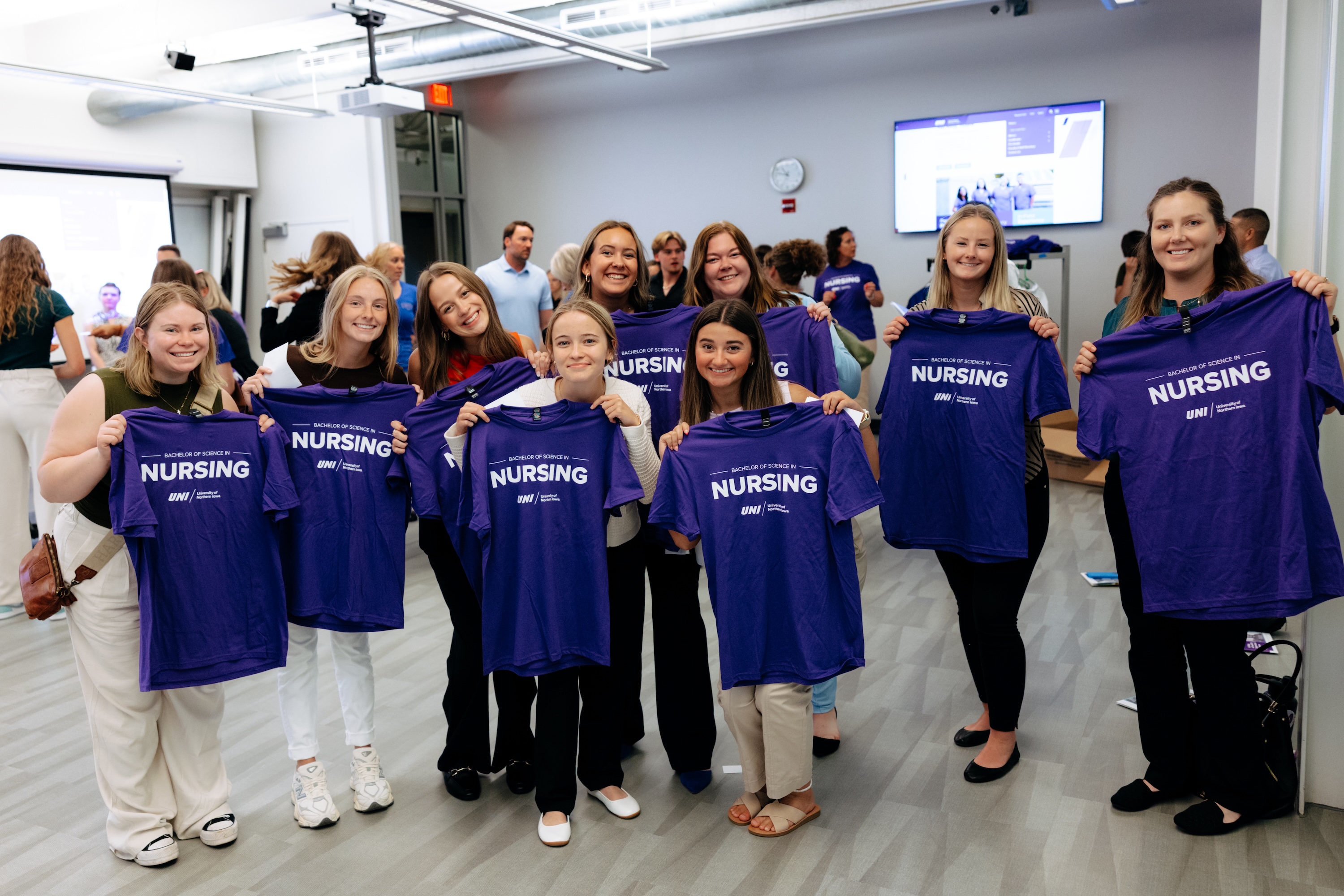Nursing Major
A new pathway for nursing professionals
University of Northern Iowa's Bachelor of Science in Nursing (BSN) program prepares nurses who are clinically focused and practice-ready. Students become proficient through situational awareness and develop clinical judgment, allowing them to excel in a variety of settings.
Active learning is at the forefront of UNI Nursing’s innovative new facilities, customized for a competency-based education within an environment that models clinical settings. Integrated classes combine lecture, theory, fully equipped labs and state-of-the-art simulations — allowing students to learn while practicing, right on campus.
We are still accepting applications for Fall 2025! Please visit our admissions page for more information on how to apply or contact us at nursing@uni.edu with any questions.

Focus on Patients
412.5 hours of clinicals in settings such as acute, long-term, hospice, chronic, rehabilitative, and critical/trauma care, obstetrics, pediatrics, mental health, community and public health, and more.
Care Competency
112.5 hours in nursing labs to develop care competencies such as administering medications and assessing patientsʼ conditions through simulations and standardized patient examinations.
In-Field Experience
150-hour residency in an acute or critical care unit setting, mentored by RN.
Interested in Nursing?
Contact us directly at:
Department of Nursing & Public Health
Phone: 319-273-2828
Email: nursing@uni.edu
Nursing Admissions
Email: admissions@uni.edu
Nursing Advising
Phone: 319-273-3406
Email: colleen.sullivan@uni.edu
Learn more about UNI Nursing from our first cohort of students
“This is a program that is going to really impact the university, the students and the community… I’m honored, really, to be a part of it.”
- Mackenzie McDonald, Class of 2027

"Some of my favorite aspects so far are how hands-on the program is. From day one we have been getting to use our lectured skills hands-on."

"The hands-on clinical experiences have been especially rewarding, giving me the opportunity to apply what I learn in the classroom to real patient care."

"I have really enjoyed the hands-on practice. Throughout the first semester we were constantly practicing on the mannequins and each other."

Facilities
Welcome to the new home of the Department of Nursing & Public Health!
Newly renovated spaces within UNI's Innovative Teaching & Technology Center (ITTC) were uniquely designed for practice-based education within an environment that models clinical settings. The innovative learning environments combine lecture, skills laboratories, simulation experience and standardized patient examinations to help students develop care competencies such as administering medications and assessing conditions.

Faculty
“Students can look forward to a great and challenging nursing program. We have made sure to include many interactive courses where students can apply the knowledge they learn in the classroom to our simulation or skills laboratory. Students will also work with many clinical instructors for additional support and guidance as they transition to becoming registered nurses.”
– Jimmy Reyes, Assistant Professor of Practice
End of Program Student Learning Outcomes
|
|
|
|
|
|
|
|
|
|
Effective June 26, 2024, the baccalaureate nursing program at the University of Northern Iowa is a candidate for initial accreditation by the Accreditation Commission for Education in Nursing. This candidacy status expires on June 26, 2026.
The date for the Initial Accreditation Site Visit is scheduled for March 3-5, 2026.
View the public information disclosed by the ACEN regarding this program on the ACEN website.
Accreditation Commission for Education in Nursing (ACEN)
3390 Peachtree Road NE, Suite 1400
Atlanta, GA 30326
(404) 975-5000

Featured Stories
As a Nurse, She Saved His Life. Now at UNI, They're Co-Workers.
On the night of March 6, 2024, Dr. Mark Welford, head of the Department of Geography at the University of Northern Iowa, faced a life-threatening cardiac emergency. Thanks to the swift actions of nurse Natalie Nedza, Welford’s heart was restarted twice—saving his life.
Weeks later, Nedza began her new role as a nursing faculty member at UNI, where she unknowingly reunited with the man whose life she had helped save. This powerful story highlights the life-changing impact of nursing professionals and the close-knit community at UNI. Watch as Dr. Welford and Professor Nedza reflect on their incredible encounter and the importance of nursing in moments of life and death.
Building a Program for Practice-Ready Nurses from Scratch
To build practice-ready nurses, Kertz said UNI’s curriculum, faculty, facilities and equipment all have an important role to play. Partnerships with the local health care system is also vital to to stay abreast with trends and practices in health care and provide clinical sites for UNI students to learn.
“The top priorities in building this program have been creating a curriculum that is relevant to today's workforce,” said Kertz. “It's really critical that our students are ready for practice when they graduate, and we term that ‘practice ready.’ We want to ensure our graduates have the skills that they need to enter practice where they can safely care for all types of patients in many different types of settings.”


